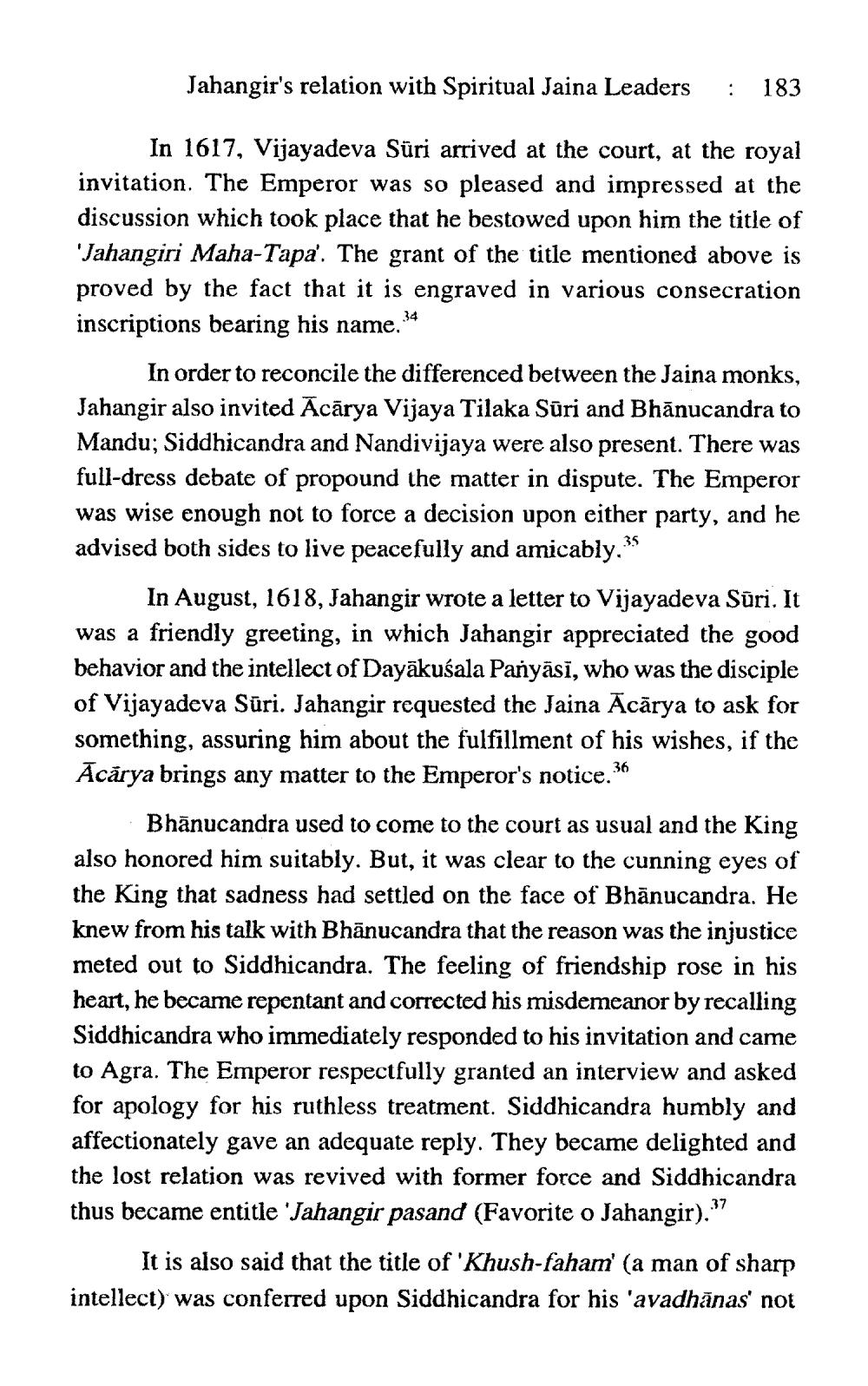________________
Jahangir's relation with Spiritual Jaina Leaders
: 183
In 1617, Vijayadeva Süri arrived at the court, at the royal invitation. The Emperor was so pleased and impressed at the discussion which took place that he bestowed upon him the title of 'Jahangiri Maha-Tapa'. The grant of the title mentioned above is proved by the fact that it is engraved in various consecration inscriptions bearing his name.”
In order to reconcile the differenced between the Jaina monks, Jahangir also invited Ācārya Vijaya Tilaka Sūri and Bhānucandra to Mandu; Siddhicandra and Nandivijaya were also present. There was full-dress debate of propound the matter in dispute. The Emperor was wise enough not to force a decision upon either party, and he advised both sides to live peacefully and amicably."
In August, 1618, Jahangir wrote a letter to Vijayadeva Sūri. It was a friendly greeting, in which Jahangir appreciated the good behavior and the intellect of Dayākušala Panyäsī, who was the disciple of Vijayadeva Sūri. Jahangir requested the Jaina Ācārya to ask for something, assuring him about the fulfillment of his wishes, if the Acărya brings any matter to the Emperor's notice. 36
Bhānucandra used to come to the court as usual and the King also honored him suitably. But, it was clear to the cunning eyes of the King that sadness had settled on the face of Bhānucandra. He knew from his talk with Bhānucandra that the reason was the injustice meted out to Siddhicandra. The feeling of friendship rose in his heart, he became repentant and corrected his misdemeanor by recalling Siddhicandra who immediately responded to his invitation and came to Agra. The Emperor respectfully granted an interview and asked for apology for his ruthless treatment. Siddhicandra humbly and affectionately gave an adequate reply. They became delighted and the lost relation was revived with former force and Siddhicandra thus became entitle 'Jahangir pasand (Favorite o Jahangir)."
It is also said that the title of 'Khush-faham' (a man of sharp intellect) was conferred upon Siddhicandra for his 'avadhānas' not




